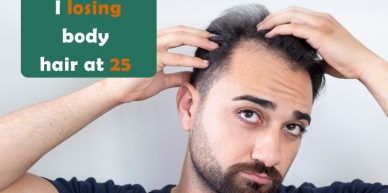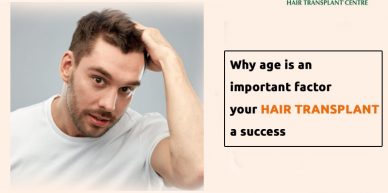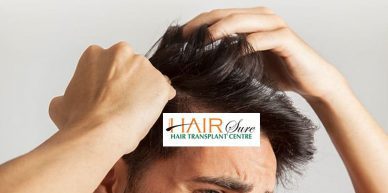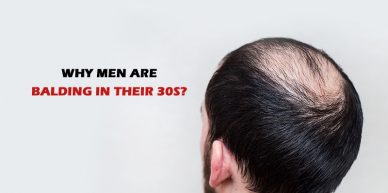Hair transplants are a cosmetic procedure for both men and women experiencing hair loss, often due to hereditary male or female pattern baldness. Hormonal changes, medical conditions, or trauma can also cause hair loss. The procedure involves taking hair follicles...
Does hair grow back on burned skin?
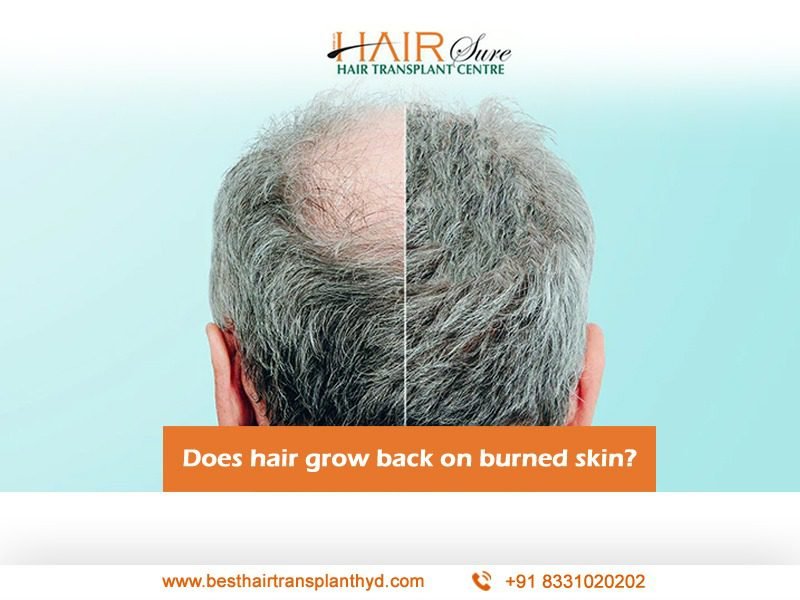
Burn victims face numerous health issues that cannot be fully or partially cured, leading to untreated problems for life. Although hair can regrow after a fire, they must take necessary precautions and be aware that severe burns can stop hair growth, especially if they damage hair follicles. Hair growth is a complex process involving growth, rest, and shedding and depends on hair follicles’ health and functionality.

When a burn occurs, it can damage the hair follicles in several ways:
- Direct damage: Burn heat can damage hair follicles, causing inactivity or death.
- Inflammation: Burns cause inflammation, hair growth, and follicle function disruption.
- Scar tissue formation: Burns heal, scar tissue forms and hair growth is hindered by skin composition and fibrous tissue replacement.
- Blood supply disruption: Burns damage blood vessels, impacting hair follicles’ nutrient and oxygen supply.
Burns affect hair growth based on severity, tissue damage, individual health, and burn location. Superficial burns may have minimal impact, while deeper burns can cause permanent hair loss. Hair regrowth may occur in mild to moderate cases but may be slow and incomplete. Seeking medical attention is advisable to assess damage and potential for regrowth.
Hair growth on the burnt skin:
Hair regrowth on burnt skin depends on factors like the severity of the burn, tissue damage, hair follicle destruction, and an individual’s overall health. The effects of hair regrowth on burnt skin vary depending on the severity of the burn and the type of hair. The general overview is that hair regrowth depends on the severity of the burn and the extent of damage to hair follicles.
- Superficial burns(first-degree burns):
- Hair should recover once the skin heals from mild burns to the epidermis since the hair follicles are not seriously harmed.
- partial-thickness burns(second-degree burns):
- Second-degree burns cause more profound skin damage, increasing hair follicle damage. Despite not being destroyed, regrown hair may be thinner and different in texture and colour.
- full-thickness burns(third-degree burns):
- Third-degree burns cause extensive damage to hair follicles, limiting hair regrowth and causing scar tissue formation, making it less likely.
- Hair follicle damage:
- Severe burns can irreversibly damage hair follicles, preventing new hair growth and causing irreversible damage to hair production.

- Inflammation and immune response:
- Burns cause inflammatory responses, disrupting the hair growth cycle and inhibiting follicle regrowth.
- Depth of burn:
- The severity and depth of burns significantly impact hair follicle damage, reducing regrowth likelihood in deeper burns affecting multiple layers of skin.
- Secondary infections and complications:
- Burns increase skin vulnerability to infections, damage hair follicles, and hinder regrowth.
- Scar tissue formation:
- Scar tissue from burn healing may limit hair regrowth by replacing functional follicles, preventing new hair growth.
- Medical interventions:
- Medical interventions like skin grafts may be necessary for severe burns, as they may not contain viable hair follicles, reducing hair regrowth chances.
- Individual factors:
- Individual factors impact hair regrowth potential after burns.
Milder burns may lead to hair regrowth, eventually resembling the original hair. However, hair regrowth may not be as dense or robust as before the burn, and the quality of regrown hair can vary. Severe burns, particularly those causing extensive damage, have lower chances of complete hair regrowth due to scar tissue formation and complications. Please consult a medical professional, such as a dermatologist or burn specialist, for a thorough assessment of the burn and its impact on hair follicles and guidance on treatment options or interventions to support hair regrowth.
Precautions to be followed for burnt skin for hair growth:
Burn victims should take precautions to support the healing process and encourage optimal hair regrowth. The severity of the burn and damage to hair follicles significantly impact the outcome.
Here are some recommendations:
- Medical care and follow-up:
- Seek immediate medical attention for proper assessment and treatment of the burn.
- Follow your healthcare provider’s recommendations for wound care, medications, and other treatments to properly heal the burned skin and surrounding tissues.
- Nutrition and hydration:
- Proper nutrition and hydration are essential for overall skin and hair health.
- Ensure you consume a balanced diet of vitamins, minerals, and proteins supporting hair growth.
- Avoid further trauma:
- Protect the healing skin from additional trauma, friction, or pressure.
- Avoid scratching, picking, or pulling at the healing skin, as this could damage hair follicles and hinder regrowth.
- Scalp massage:
- Massaging the scalp in the burned area can help improve blood circulation to the hair follicles and promote regrowth.
- Use gentle circular motions with your fingertips.
- Topical treatment:
- Consult with your healthcare provider about using topical treatments that are safe and suitable for your specific burn injury.
- Some over-the-counter or prescription products may aid in wound healing and hair regrowth.
- Sun protection:
- Protect the healing skin from sun exposure by wearing protective clothing and sunscreen and avoiding direct sunlight.
- Sunburn can further damage the healing skin and inhibit regrowth.
- Avoid harsh chemicals:
- Refrain from using harsh hair care products, hair dyes, or chemical treatments on the healing skin.
- These substances could irritate the area and slow down the regrowth process.
- Patience:
- Hair regrowth after a burn takes time, so be patient and realistic about your expectations.
- Visible progress may not be seen for several months.
- Stay hydrated:
- Drinking adequate water supports overall skin health, including the scalp and hair follicles.
- Stress management:
- Manage stress through relaxation techniques, mindfulness, and activities that promote emotional well-being.
- High-stress levels can impact hair growth.
- Consult a specialist:
- Consider consulting a dermatologist or a hair specialist who has experience with post-burn hair regrowth.
- They can offer personalised guidance and suggest the best courses of action.
Hair regrowth in burned areas depends on factors, and complete regrowth may not always be possible, especially in severe burns. Prioritise overall health and follow the healthcare provider’s recommendations for optimal healing and regrowth.
The diet recommended for burnt victims for hair growth:
A balanced, nutritious diet is crucial for overall health and hair regrowth in burn victims. While no specific diet guarantees hair regrowth, certain nutrients are essential for maintaining healthy hair and skin.
Diet to include:
- Proteins:
- Ensure adequate protein intake from lean sources like poultry, fish, eggs, beans, lentils, nuts, and seeds for healthy hair.
- Vitamins and minerals:
- Consume fruits, vegetables, and vitamins A, C, E, and biotin for healthy hair follicles and skin.
- Omega-3 fatty acids:
- For scalp health and hair growth, consume healthy fats like fish, flaxseeds, chia seeds, walnuts, and avocados.
- Collagen-rich foods:
- Collagen is crucial for skin health and wound healing; eat collagen-rich foods.
- Whole grains:
- Whole grains, including brown rice, quinoa, wheat, and oats, offer complex carbohydrates, fibre, and essential nutrients.
- Hydration:
- Stay hydrated for skin health.
Foods to avoid:
- Processed foods:
- Reduce processed and sugary food intake for inflammation and overall health.
- Sugary snacks and beverages:
- Sugar intake may cause inflammation and skin issues.
- Alcohol and caffeine:
- Excessive alcohol and caffeine consumption can dehydrate the body, potentially affecting skin and hair health.
- Excessive salt:
- High sodium intake may cause fluid retention, potentially impacting skin health.
- Highly processed foods:
- Reduce trans and saturated fats in fried and processed foods for skin health.
- Crash diet:
- Extreme diets can cause nutrient deficiencies, impacting health and hair growth.
Individual nutritional needs vary based on age, gender, activity level, and medical conditions. Consult a registered dietitian or healthcare provider for personalised guidance on burn injury or hair regrowth-related dietary concerns.
At Cyber HairSure, we are dedicated to a policy of offering patients unmatched services. At Cyber HairSure Advanced Hair Transplant Clinic, all of your hair-related worries can be expertly resolved, and you can rest assured that your smiles won’t flinch again. Enter Cyber HairSure and exit with the desired appearance.
Cyber HairSure can assist in determining the precise reason for hair loss and offer suitable treatment solutions that are suited to the requirements of the individual. Always consult a medical expert when you have questions about your health. Always consult a medical expert when you have questions about your health.
We at Cyber HairSure, are committed to providing matchless services to all our patients. All your concerns regarding hair problems can be flawlessly sorted at Cyber HairSure Advanced Hair Transplant Clinic, guaranteeing that you will be left with smiles that won’t fall again. Walk into Cyber HairSure and walk back with the look that you desire. Call 040 49540202 / 8331020202 or email us at cyberhairsure@gmail.com to book your consultation. Visit our website, Hair Transplant Clinic, to know more.




